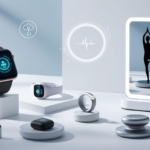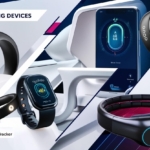The End of Finger Pricks?
Imagine checking your blood sugar without a single finger prick. No test strips. No lancets. No pain. For over 400 million people living with diabetes, that’s not just a dream—it’s becoming reality.
Welcome to 2025, where needle-free glucose monitors are rapidly transforming how we manage blood sugar. Whether you’re diabetic, prediabetic, or just a tech-savvy health enthusiast, this article breaks down the devices, the science, and the real-world impact of going needle-free.
What Are Needle-Free Blood Glucose Monitors?
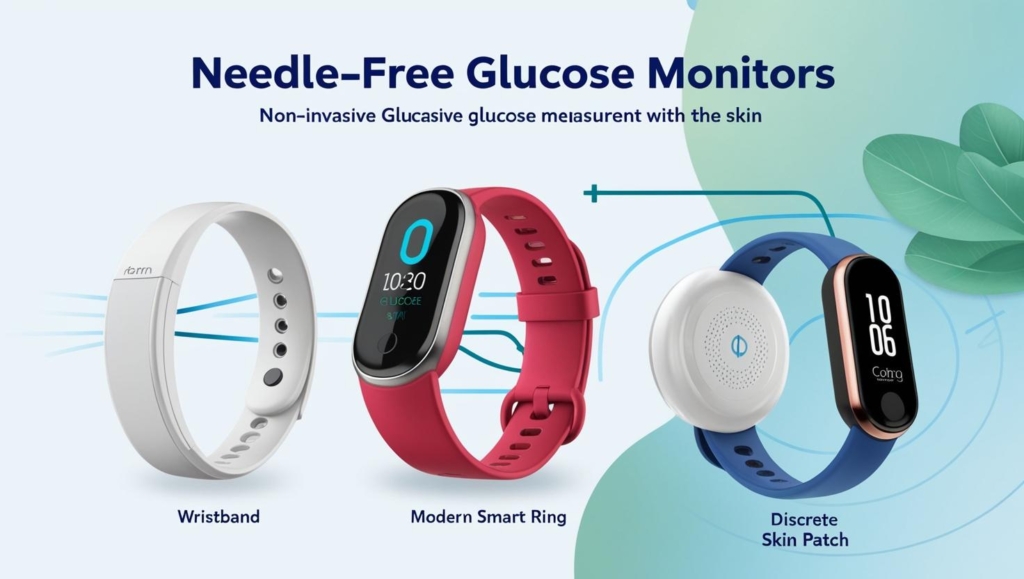
Non-invasive or minimally invasive glucose monitors are devices that track your blood sugar without requiring you to pierce the skin repeatedly. Instead of extracting blood, they use innovative technologies like:
- Optical sensors (measuring glucose through skin)
- Interstitial fluid readings (via tiny skin sensors)
- AI algorithms to predict glucose changes in real-time
These devices can be worn on your arm, wrist, finger, or even as a ring. And unlike traditional monitors, they don’t interrupt your life—they integrate into it.
Top Needle-Free Glucose Monitors in 2025
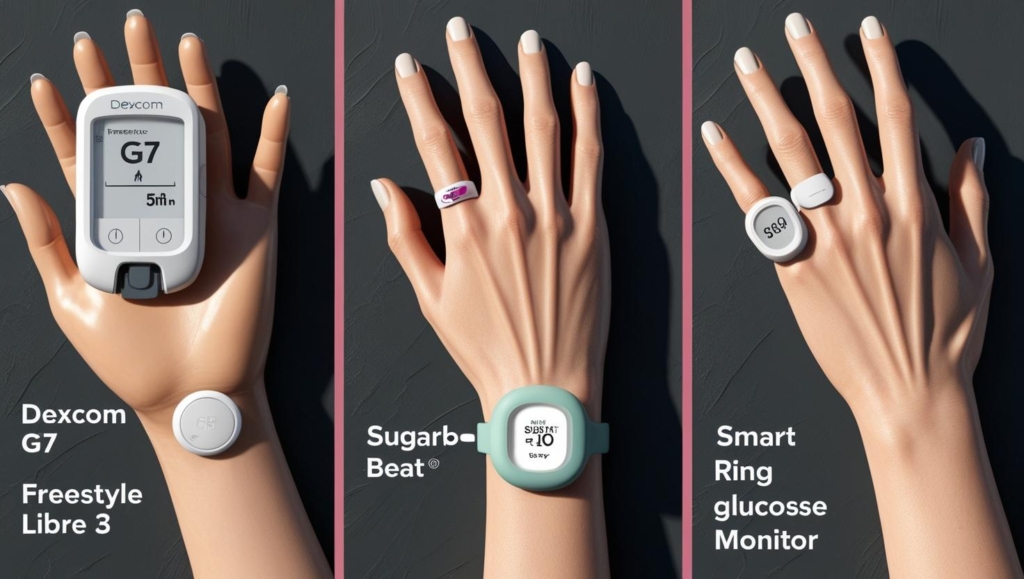
Here’s a breakdown of the most promising devices this year:
🟢 Dexcom G7 (Minimally Invasive)
- Ultra-thin skin sensor, virtually pain-free
- Real-time tracking via app
- FDA-approved & widely used
- Best for: Type 1 diabetics, insulin users
🔵 Abbott’s FreeStyle Libre 3 – AI Edition
- Scan-free readings every 60 seconds
- Now powered with AI prediction & alerts
- Compact, 14-day wear sensor
- Best for: All diabetics wanting full-day glucose insight
🔬 Know Labs Non-Invasive Glucose Monitor
- Uses radio-frequency technology to scan blood sugar
- No skin contact or insertion
- Currently in advanced trials
- Best for: Early adopters & tech investors
🇯🇵 Quantum Operation Glucose Monitor (Japan)
- Measures glucose continuously via wristband
- Medical-grade readings without penetration
- Still under international review
- Best for: International diabetes communities
📍 SugarBEAT by Nemaura
- Skin patch that collects data from interstitial fluid
- App-based analysis + glucose alerts
- CE-approved in Europe
- Best for: People with Type 2 diabetes and prediabetics
💍 Hagar Smart Ring (Israel)
- A discreet, wearable ring that continuously tracks glucose
- No skin breach—completely non-invasive
- AI-powered insights via phone app
- Best for: Non-insulin users, lifestyle tracking
How AI Makes These Monitors Smarter
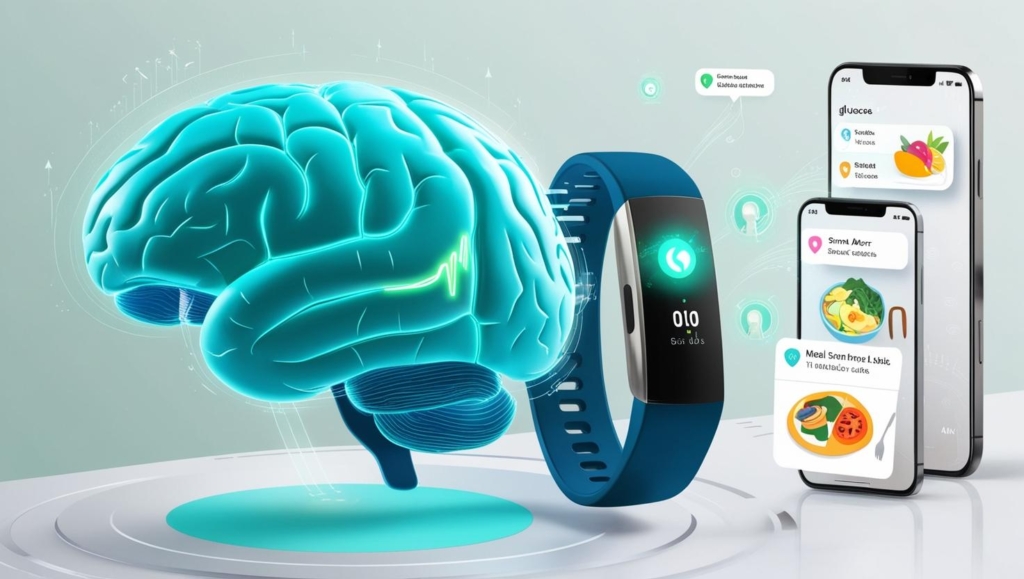
What really sets these devices apart in 2025 is AI. Today’s monitors don’t just track glucose—they predict it, coach you, and even prevent hypoglycemia or hyperglycemia before symptoms hit.
- Smart Alerts: Warns you hours before a crash or spike
- Meal Feedback: Tells you how specific foods affect your levels
- Habit Suggestions: Personalized insights based on your trends
- Integration: Sync with smartwatches, fitness apps, insulin pumps
Real-World Experience: A Day Without Finger Pricks

Nikhil, 35, has lived with Type 2 diabetes for 12 years. He recently switched to SugarBEAT.
“I used to test 3–4 times a day. Now? I wear a patch, and my phone keeps me informed. I can go hiking, travel, or even nap without worrying about sudden drops.”
Beyond convenience, he feels empowered—finally understanding how stress, coffee, and sleep affect his blood sugar in real-time.
What to Expect: Accuracy, Cost & Availability
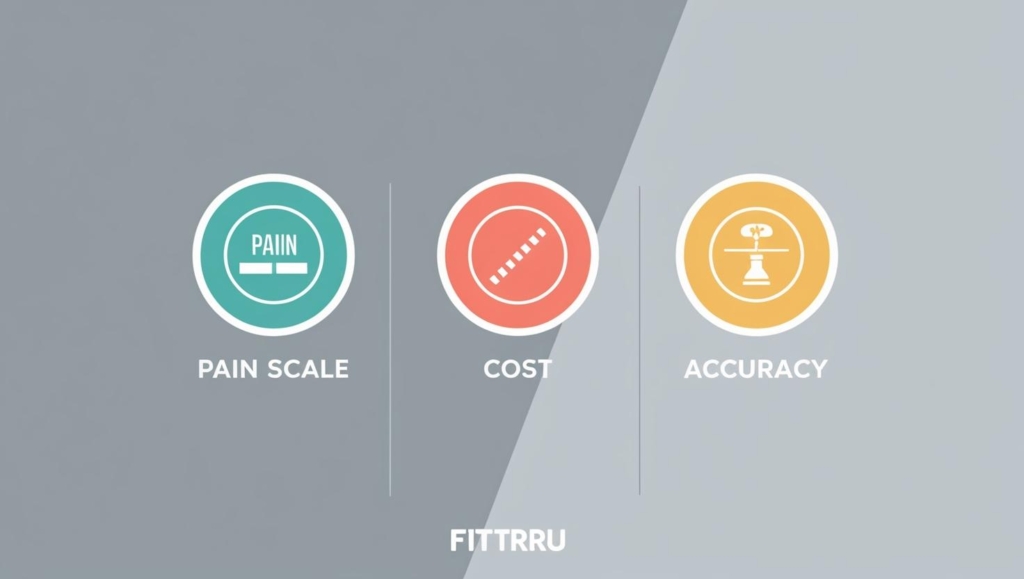
| Feature | Traditional Monitor | Non-Invasive Devices |
|---|---|---|
| Pain | Moderate | Minimal to none |
| Accuracy | High (w/ calibration) | Improving via AI |
| Cost | ~$60/month (strips) | $100–$350/month |
| Insurance Coverage | Widely accepted | Expanding in 2025 |
Most devices are covered partially by insurance or FSA/HSA accounts. As adoption rises, costs are expected to fall—especially as FDA approvals expand.
Risks, Myths & What to Watch Out For
While the tech is exciting, be aware of:
- Skin irritation with some adhesive patches
- Delayed readings vs. blood pricks (interstitial fluid ≠ instant)
- Overhyped claims – not all “non-invasive” gadgets are FDA-approved yet
- Data privacy – ensure your device uses encrypted storage
Myth: “These replace all medical testing.”
👉 Fact: They’re a tool—not a total replacement. Always consult your healthcare provider.
Final Thoughts: The Future Is Pain-Free, Smart & Personal
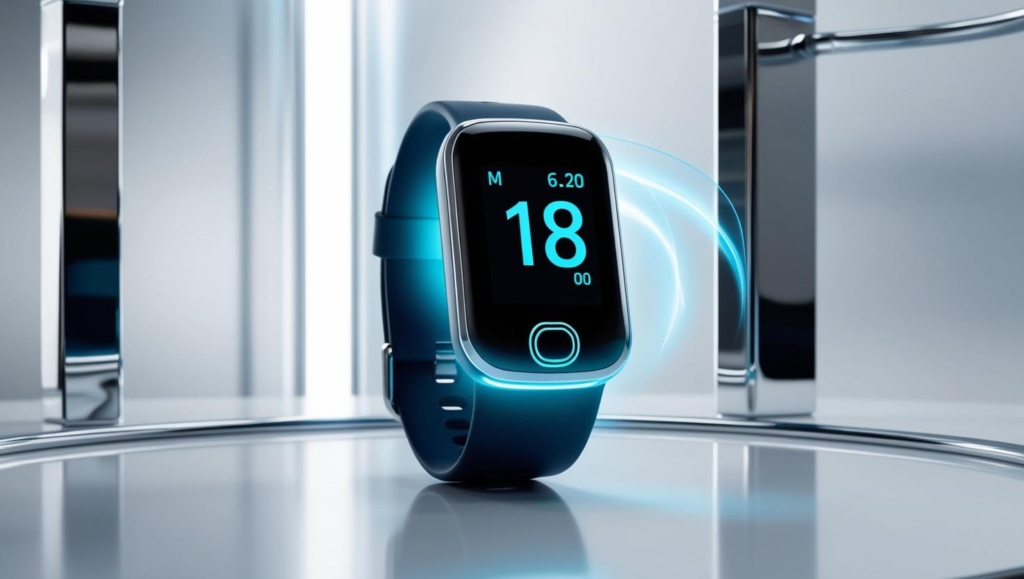
The evolution of glucose monitoring is more than a tech trend—it’s a human story of reclaiming control, freedom, and peace of mind.
As devices get smarter, smaller, and more accurate, managing diabetes will feel less like a burden and more like empowerment.
And that’s a future worth celebrating.
💬 What’s Your Experience?
Have you tried a needle-free glucose monitor? Thinking about it?
👉 Drop your thoughts in the comments below. Let’s talk tech, trust, and transformation.
📬 Stay Ahead with Fittrru
Get expert-backed guides on health tech innovations delivered monthly.
👉 Subscribe and join the smart wellness movement.



